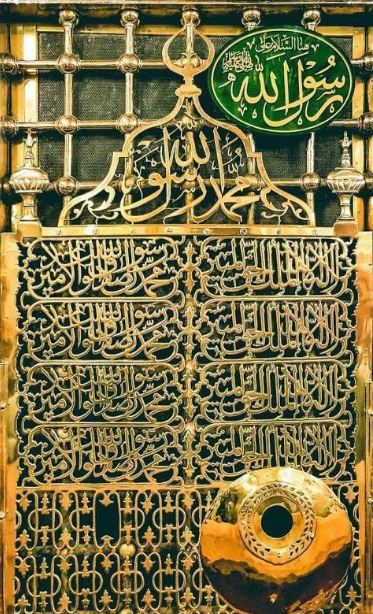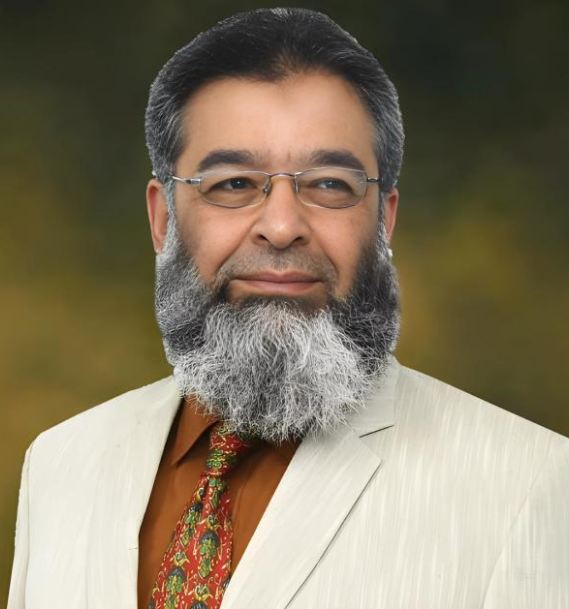by Muhammad Mohsin Iqbal
In every era of human history, certain individuals have risen above all others by virtue of their unmatched character, timeless message, and universal appeal. Among these personalities, none occupies a more sacred and revered position in the hearts of more than a billion people across the world than the Prophet Muhammad (Peace Be Upon Him). He is not only the seal of prophethood in Islam, but also a symbol of mercy, justice, and moral excellence. The Holy Qur’an testifies: “Muhammad is not the father of [any] one of your men, but [he is] the Messenger of Allah and last of the prophets. And ever is Allah , of all things, Knowing.” (Surah Al-Ahzab, 33:40). This finality is not a matter of belief alone but constitutes the bedrock of Islamic faith, and denying it is to deny Islam itself.

The reverence with which Muslims hold the Prophet (P.B.U.H) stems directly from divine injunctions. The Qur’an commands the believers to honor him: “Indeed, We have sent you as a witness and a bringer of good tidings and a warner, that you [people] may believe in Allah and His Messenger and honor him and respect the Prophet and exalt Him morning and afternoon” (Surah Al-Fath, 48:8-9). It is not merely a spiritual connection but a relationship rooted in obedience, love, and defense of his name and message.
Numerous Hadiths further underscore this profound respect. The Prophet (P.B.U.H) said: “None of you truly believes until I am more beloved to him than his father, his child, and all mankind.” (Bukhari). His companions demonstrated this love by defending him with their lives, considering it a greater honor than life itself. When an enemy disrespected the Prophet, his followers would respond with an uncompromising resolve that showed their commitment to his honor.
Recognition of Prophet Muhammad’s (P.B.U.H) extraordinary character has not been limited to the Islamic world. Many non-Muslim historians, philosophers, and religious thinkers have acknowledged his greatness. George Bernard Shaw once remarked: “He must be called the Savior of Humanity. I believe that if a man like him were to assume the dictatorship of the modern world, he would solve its problems in a way that would bring peace and happiness.” Similarly, Michael H. Hart in “The 100” ranked Prophet Muhammad (P.B.U.H) as the most influential person in history, citing his unparalleled success on both religious and secular fronts.
Moreover, various religious scriptures and traditions—while not explicitly naming him—indirectly affirm his coming and qualities. In the Christian tradition, many scholars have interpreted the reference to the “Paraclete” or “Comforter” mentioned in the Gospel of John (14:16, 15:26, and 16:7) as a prophecy about the Prophet Muhammad (P.B.U.H), especially when examining the meaning of the word in its original Greek context. In the Jewish scriptures, Deuteronomy 18:18 says: “I will raise them up a Prophet from among their brethren, like unto thee (Moses), and will put my words in his mouth.” Islamic scholars point out that Prophet Muhammad (P.B.U.H), a descendant of Ishmael, fulfills this description as a non-Israelite prophet who, like Moses, brought a comprehensive law and led a nation.
Even in Hindu texts, there are references believed by some scholars to predict a final prophet. The Bhavishya Purana, an ancient Sanskrit text, mentions the arrival of a figure named “Mahamada” who would be a reformer in a foreign land and spread truth. Though interpretations differ, such passages have been cited to demonstrate that the universality of the Prophet’s message was acknowledged across civilizations.
Unfortunately, in recent years, a deeply disturbing trend has emerged across the world—deliberate attempts to disregard, mock, or diminish the importance of Prophet Muhammad (P.B.U.H) under the guise of free speech or artistic freedom. From blasphemous cartoons in European publications to offensive films and hate-filled speeches, such provocations are designed to hurt the sentiments of Muslims globally. This phenomenon, now widely referred to as Islamophobia, has been weaponized to normalize religious hatred, fuel division, and challenge the deeply held beliefs of over a billion Muslims.
Pakistan, too, has not remained immune to these dangerous efforts. Certain local and foreign-funded elements have sought to dilute the centrality of the Prophet’s (P.B.U.H) role and question the finality of his Prophethood through covert ideological campaigns, educational distortions, or legal manipulations. Attempts to rebrand Qadiani beliefs as mainstream Islam or to create confusion about Islamic tenets are part of a broader global agenda that seeks to undermine the unity of the Muslim Ummah. However, such actions have been met with strong resistance, not only from religious circles but also from the Pakistani Parliament, judiciary, and the general public.
What the world must understand is that while Muslims may differ on politics or culture, they are completely united on one core issue: the love, honor, and finality of the Holy Prophet Muhammad (P.B.U.H). From Asia to Africa, Europe to the Americas, Muslims have time and again demonstrated this unity. Peaceful protests, scholarly rebuttals, legal petitions, and international diplomacy have all been employed to uphold the dignity of the Prophet (P.B.U.H). This global unity serves as a reminder that disrespect toward the Prophet is not a mere political or legal issue—it strikes at the very soul of the Muslim identity.
Legally and politically, many countries uphold laws to protect religious sentiments and prohibit hate speech, including blasphemy against revered religious figures. In many European states like Germany and Austria, insulting religious sentiments can invite legal prosecution. Even India, includes provisions under sections 295 and 295A of the Indian Penal Code to protect religious communities against insults to their sacred beliefs and personalities. The European Court of Human Rights has, in past rulings, upheld convictions against those who insulted Prophet Muhammad (P.B.U.H), terming such actions as incitement to hatred and not protected by freedom of expression.
However, no nation has been more resolute in legally safeguarding the finality of Prophet Muhammad (P.B.U.H) than Pakistan. In 1974, following a nationwide movement and parliamentary debate, the Constitution of Pakistan was amended to declare Qadianis (Ahmadis) as non-Muslims. This historic decision was not based on religious discrimination but was aimed at preserving the core Islamic belief in the finality of prophethood. The Ahmadi community, despite calling themselves Muslims, held beliefs contrary to this foundational doctrine. The Parliament of Pakistan, representing the will of its people, determined through exhaustive hearings that this group’s ideology deviated from mainstream Islam. Thus, under the Second Amendment to the Constitution of Pakistan, it was categorically stated: “A person who does not believe in the absolute and unqualified finality of the Prophethood of Muhammad (P.B.U.H) is not a Muslim for the purposes of the Constitution or law.”
Later, Ordinance XX was promulgated in 1984, which further barred Ahmadis from calling themselves Muslims or using Islamic titles, terminologies, or preaching their beliefs as Islamic. This legislation was upheld by the Supreme Court of Pakistan in the Zaheeruddin case (1993), where the court ruled that the state has the right to regulate religious expression to maintain public order and to prevent deception. The court rightly observed that freedom of religion does not extend to misrepresenting another religion’s symbols and practices.
It is essential to recognize that this legal stance is not an incitement to hatred or violence against any community. Rather, it is a firm line drawn to protect the integrity of Islamic beliefs. All citizens of Pakistan, regardless of religion or sect, are entitled to full rights under the law, but no one can be allowed to distort foundational principles of a religion for personal or political gain.
Respecting the Prophet Muhammad (P.B.U.H) is not just a theological matter. It is deeply emotional, cultural, and political for Muslims worldwide. The outcry seen whenever his honor is disrespected—be it through blasphemous cartoons, films, or statements—is not a reflection of intolerance, but of sincere devotion and the deep emotional bond that Muslims share with their beloved Prophet (P.B.U.H). Any attempts at provocation under the guise of free speech only serve to inflame tensions and deepen misunderstandings among civilizations.
The world must realize that just as the Jewish and Christian communities demand respect for Moses and Jesus, Muslims have an even more profound and protective relationship with their Prophet. The Prophet of Islam (PBUH) is not only the final messenger but the embodiment of truth, mercy, and justice. His message continues to guide billions, and his honor remains sacred above all.
Thus, in every corner of the world—whether in the courts of law, houses of worship, scriptures of old, or hearts of believers—the respect, honor, and finality of Prophet Muhammad (P.B.U.H) must be acknowledged and preserved. It is a call not just for Muslims, but for humanity to rise above narrow prejudices and recognize the dignity of one who transformed the moral compass of the world.

















